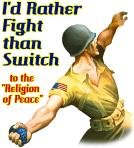 Phyllis Chesler
Phyllis Chesler Once I was held captive in Kabul. I was the bride of a charming, seductive and Westernised Afghan Muslim whom I met at an American college. The purdah I experienced was relatively posh but the sequestered all-female life was not my cup of chai — nor was the male hostility to veiled, partly veiled and unveiled women in public.
When we landed in Kabul, an airport official smoothly confiscated my US passport. “Don’t worry, it’s just a formality,” my husband assured me. I never saw that passport again. I later learnt that this was routinely done to foreign wives — perhaps to make it impossible for them to leave. Overnight, my husband became a stranger. The man with whom I had discussed Camus, Dostoevsky, Tennessee Williams and the Italian cinema became a stranger. He treated me the same way his father and elder brother treated their wives: distantly, with a hint of disdain and embarrassment.
In our two years together, my future husband had never once mentioned that his father had three wives and 21 children. Nor did he tell me that I would be expected to live as if I had been reared as an Afghan woman. I was supposed to lead a largely indoor life among women, to go out only with a male escort and to spend my days waiting for my husband to return or visiting female relatives, or having new (and very fashionable) clothes made.
In America, my husband was proud that I was a natural-born rebel and free thinker. In Afghanistan, my criticism of the treatment of women and of the poor rendered him suspect, vulnerable. He mocked my horrified reactions. But I knew what my eyes and ears told me. I saw how poor women in chadaris were forced to sit at the back of the bus and had to keep yielding their place on line in the bazaar to any man.
ENTIRE ARTICLE HERE.














No comments:
Post a Comment